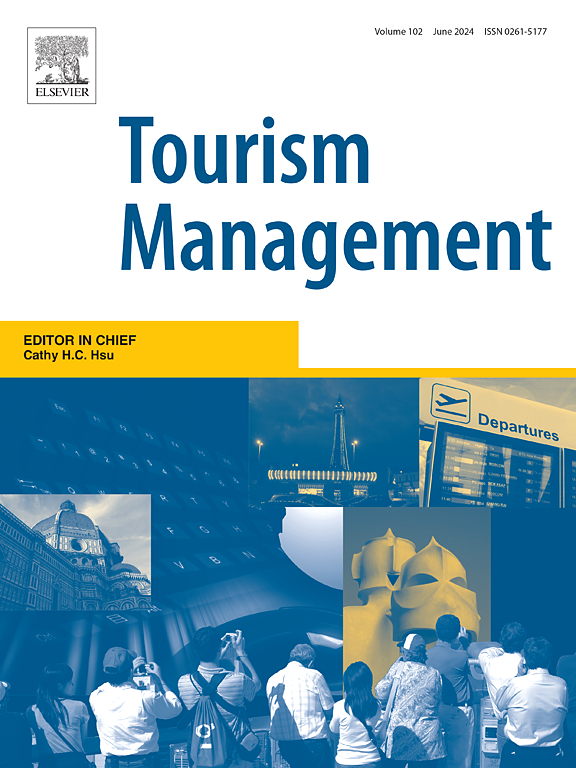Echoes of tragedy: How negative social media shapes tourist emotions and avoidance intensions? A multi-methods approach
IF 10.9
1区 管理学
Q1 ENVIRONMENTAL STUDIES
引用次数: 0
Abstract
Research on tragic events in tourist destinations and their impacts on tourists' decisions is insufficient, particularly regarding the emotions underlying tourists' behavioural intentions. Drawing on affective event theory, this research employs a multi-methods approach, including FaceReader AI software, in-depth interviews and a quantitative study, to understand how negative electronic word-of-mouth (eWOM) triggers tourists' negative emotions and influenced their avoidance intentions following the Itaewon crowd crush in South Korea. Preliminary findings confirm the existence of negative emotions and identify their types (i.e. agonistic emotions and retreat emotions). Empirical evidence shows that negative eWOM significantly affects tourists' negative emotions, thus eliciting avoidance intentions towards Itaewon and crowded destinations. Furthermore, cross-country analysis indicates that tourists from China and Vietnam differ in the degree of negative emotions elicited by eWOM and the emotional strategies they employ. This research provides deep insights into the psychological mechanism underlying tourists’ negative emotions and avoidance intentions following a tragic event in a tourist destination.
悲剧的回响:负面社交媒体如何塑造游客的情绪和回避意图?多方法方法
关于旅游目的地悲剧事件及其对游客决策影响的研究不足,特别是关于游客行为意图背后的情绪的研究。本研究以情感事件理论为基础,采用FaceReader人工智能软件、深度访谈和定量研究等多方法,了解韩国梨泰院人群踩踏事件后,负面电子口碑(e口碑)如何引发游客的负面情绪,并影响游客的回避意愿。初步研究结果证实了负性情绪的存在,并确定了负性情绪的类型(即对抗情绪和退缩情绪)。实证表明,负性eWOM显著影响游客的负性情绪,从而引发游客对梨泰院和拥挤目的地的回避意向。此外,跨国分析表明,中国和越南游客在eWOM引发的负面情绪程度和他们采用的情绪策略上存在差异。本研究深入探讨了游客在旅游目的地发生悲剧性事件后产生负面情绪和回避意向的心理机制。
本文章由计算机程序翻译,如有差异,请以英文原文为准。
求助全文
约1分钟内获得全文
求助全文
来源期刊

Tourism Management
Multiple-
CiteScore
24.10
自引率
7.90%
发文量
190
审稿时长
45 days
期刊介绍:
Tourism Management, the preeminent scholarly journal, concentrates on the comprehensive management aspects, encompassing planning and policy, within the realm of travel and tourism. Adopting an interdisciplinary perspective, the journal delves into international, national, and regional tourism, addressing various management challenges. Its content mirrors this integrative approach, featuring primary research articles, progress in tourism research, case studies, research notes, discussions on current issues, and book reviews. Emphasizing scholarly rigor, all published papers are expected to contribute to theoretical and/or methodological advancements while offering specific insights relevant to tourism management and policy.
 求助内容:
求助内容: 应助结果提醒方式:
应助结果提醒方式:


